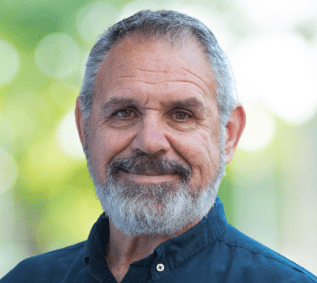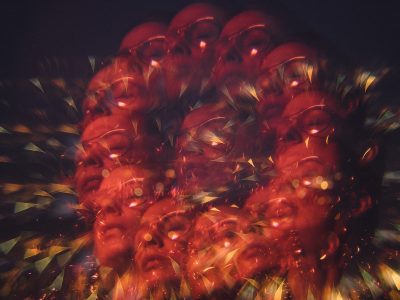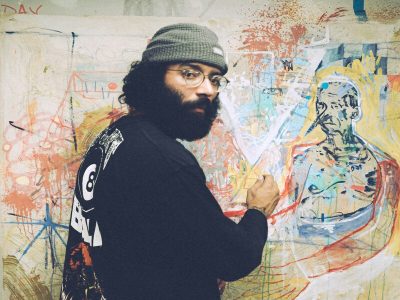Professor James Ward, the Director of the Poche Centre for Indigenous Overall health at The University of Queensland, discusses how HIV impacts Indigenous persons all around the world.
Details about the GLOWS Grant Plan (in partnership with Gilead and the UQ Poche Center for Indigenous Health) can be discovered below.
The adhering to is a transcript among Karl and James Ward.
JAMES
HIV is everyone’s organization.
KARL
Hi there there. Welcome to +Converse on +Existence where by we’re all about turning positive into a moreover. Now, we’re chatting about Indigenous peoples and HIV, and joining me from Australia is Professor James Ward. He is an infectious health conditions epidemiologist and a national leader in Australia and Torres Strait Islander investigate. Professor, it is fantastic to see you. Many thanks for generating the time to chat with me.
JAMES
Yeah, thank you very considerably. Yeah.
KARL
How is HIV perceived in Indigenous communities in this article?
JAMES
It’s kind of like, “Oh, that’s anything “that the other fellows get, the white fellows get, “or homosexual adult men get in the city.” But essentially what we do have in Australia among the Indigenous populations, it is extremely distinct epidemic. We have considerably much more scenarios attributable to heterosexual transmission, substantially far more scenarios attributable to injecting drug use and however, the the greater part of scenarios are amid males who have intercourse with men. When you see headlines in Australia and when our populace see headlines that HIV’s practically eradicated, it form of puts us at fantastic ease and comfort, I guess, but I do not believe we’re out of the woodworks yet. There is so quite a few things at enjoy that could escalate transmission very speedily in communities.
KARL
Does the stigma engage in a huge purpose in as to why all those messages are not, as you say, remaining taken up?
JAMES
Yeah. Stigma, discrimination, racism in healthcare. These are the three things that impression accessibility. They affect health care. There’s been numerous stories about the yrs about folks who are dwelling with HIV who are on treatment but sharing with loved ones members and who are not publicly out, who are not out, who haven’t disclosed their status and trying to conceal their prescription drugs from household associates. Yeah, there is a lot of stigma however close to.
KARL
What are some of the exclusive challenges that Indigenous people experience when it will come to well being equity and treatment, particularly as it relates to HIV?
JAMES
There’s a whole large amount I could say here. To start with, location indicators that might be appropriate for the whole country, but possibly not tailor-made for Indigenous populations. Which is just one detail, and possibly concentrating in on the right location to concentration in on. Two, I think we have to have to do a great deal superior in the treatment cascade. The number of folks who occur to the clinic, they get identified, and then they fall off on the cascade. They never occur back again for therapy or they really don’t preserve treatment or they are not protecting normal visits with their doctors. That is markedly various to nonIndigenous populace, and that seriously talks to boundaries to health care and the difficulties that are in healthcare. From time to time it’s cost. Occasionally it’s transportation. At times it is availability of appointments. Occasionally it’s other comorbidities. There are other challenges. There is frequently a lot of comorbidities in our inhabitants. People today dwelling with diabetes who also have HIV. Heading to a single doctor for serious treatment and one more health care provider for HIV care is often a barrier for people. Likely to, if you are living in a rural location, heading to the plainly marked sexual well being clinic in a rural city is problematic for people today. Not just for Aboriginal and Torres Strait Islander people today, but for all people.
KARL
How vital is it that Indigenous people have a seat at the desk, Professor, when it comes to the decisions that are staying manufactured all around health care and wellbeing equity in this state?
JAMES
With out a voice at the table, it is truly very effortless to sideline or plan to inadvertently have an effect on individuals who are not at the desk. No matter if you’re a drug user or no matter whether you are an Aboriginal particular person, irrespective of whether you’re HIV constructive, if you’re not at that table, it is incredibly uncomplicated to be forgotten, and it is pretty remarkable how lots of periods an Aboriginal man or woman will be called to the second meeting of a recently formed committee since someone at the very first meeting said, “What about Aboriginal folks?” It is genuinely important that we do have a voice at these tables ’cause there is some exclusive nuances and challenges that do require to be solved by way of coverage or through scheduling or via plan supply. And so, quite important.
KARL
What is the GLOWS initiative? How has it arrive to be?
JAMES
Yeah, so GLOWS is a initiative to attempt and improve some of these implementation gaps of service accessibility and support shipping that I have been conversing about now. It’s an initiative of Gilead, and it’s a partnership in between Gilead Sciences and the Lowitja Institute and the UQ Poche Center for Indigenous Wellness exactly where I get the job done. Test and enhance obtain to remedy for all those that are residing with HIV, but also make improvements to PrEP uptake among our priority populations. And so it is definitely striving to deal with this for HIV, but also it is bought another arm, which is really about hepatitis. And typically, individuals two issues, notably for the injecting drug person population, typically these two matters arrive collectively. Hepatitis C and HIV normally come with each other, and so definitely crucial initiative. It’ll be rolled out over the following couple yrs, and it will enable local communities to create answers for difficulties they know that want addressing in their own communities.
KARL
Professor James Ward, I actually respect you using the time to converse us by it and for all the great perform you do. Many thanks for signing up for me.
JAMES
Great, thanks incredibly a lot. Yeah. Thank you.
KARL
Thanks. That is gonna do it for this episode of +Discuss. If you want much more details, test out our web site, pluslifemedia.com. And don’t forget, you can follow us throughout social media platforms. We are @PlusLifeMedia. Until upcoming time, be awesome to just one yet another. Give somebody a hug if you really feel like it. We’ll see you shortly. Byebye.
Like this:
Loading…











